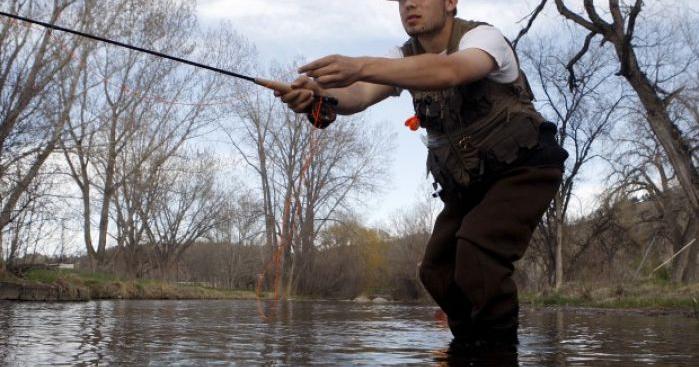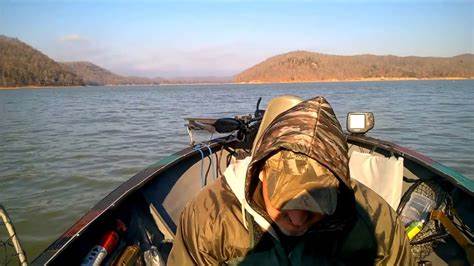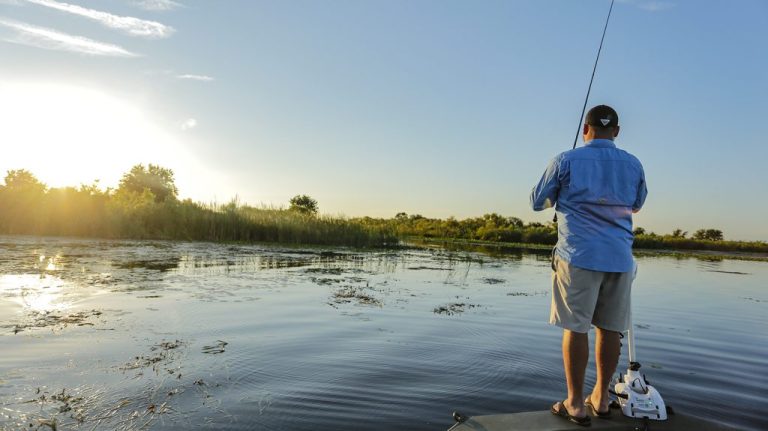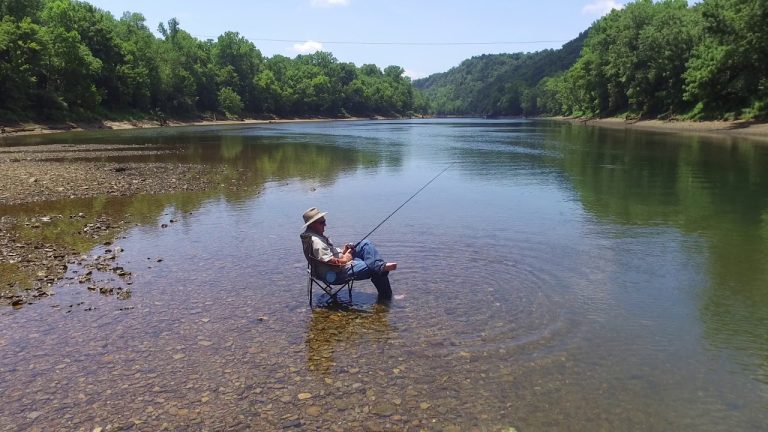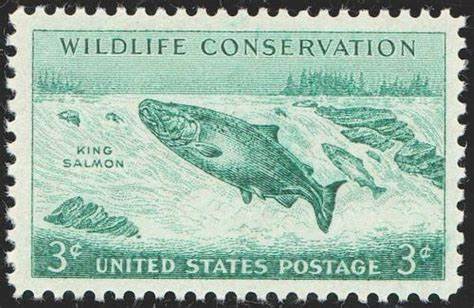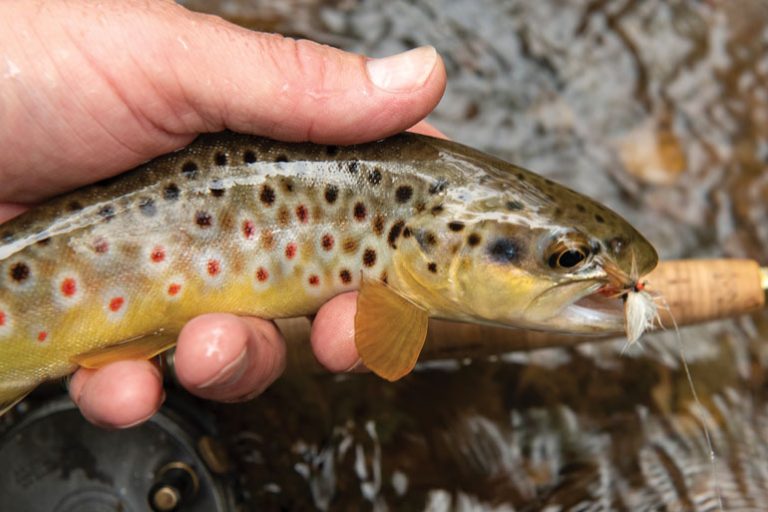For many city dwellers aged 40-65, the idea of escaping to nature for a relaxing day of fishing might seem like a distant dream. However, urban fishing offers a convenient and accessible way to enjoy this beloved pastime without leaving the city limits. In this comprehensive guide, we’ll explore the ins and outs of urban fishing licenses and highlight some of the best fishing hotspots in major US cities. Whether you’re a seasoned angler or just looking to try something new, urban fishing provides a unique opportunity to connect with nature and potentially catch your next meal, all within the bustling confines of the city.
Understanding Urban Fishing Licenses
Before you cast your line into any urban waterway, it’s crucial to understand the licensing requirements. Most states require anglers aged 16 and older to possess a valid fishing license, even when fishing in urban areas. Let’s break down the essentials of urban fishing licenses:

Types of Licenses
- Annual Licenses: These are valid for one full year from the date of purchase. They’re ideal for regular anglers who plan to fish multiple times throughout the year.
- Short-term Licenses: Many states offer 1-day, 3-day, or 7-day licenses for occasional anglers or visitors.
- Senior Licenses: Some states offer discounted or free licenses for seniors. The age requirement varies by state, typically ranging from 65 to 70 years old.
- Lifetime Licenses: For dedicated anglers, this option provides lifelong fishing privileges in the state of purchase.
How to Obtain a License
- Online: Most states now offer online license purchasing through their fish and wildlife department websites. This is often the most convenient option for tech-savvy anglers.
- By Phone: Many states allow license purchases over the phone. This can be a good option for those who prefer speaking with a representative.
- In-Person: Licenses can typically be purchased at sporting goods stores, bait shops, or local fish and wildlife offices.
Cost Considerations
License fees vary widely by state and type. Annual resident licenses generally range from $20 to $50, while non-resident licenses can cost significantly more. Short-term licenses are usually less expensive, making them a good choice for occasional anglers or those trying out urban fishing for the first time.
Special Urban Fishing Programs
Some cities have implemented special urban fishing programs that may have different licensing requirements. For example, New York City offers free fishing at designated locations during certain times of the year. Always check local regulations before fishing in urban areas.
Urban Fishing Hotspots in Major US Cities
Now that we’ve covered the basics of licensing, let’s explore some of the best urban fishing spots in major US cities across the country.
New York City, NY
The Big Apple might be known for its skyscrapers and bustling streets, but it also offers surprisingly good fishing opportunities:
- Central Park: The park’s numerous ponds and lakes are stocked with fish and offer a surreal fishing experience in the heart of Manhattan. Harlem Meer and the Lake are particularly popular spots.
- Prospect Park, Brooklyn: This park’s 60-acre lake is home to largemouth bass, pumpkinseed sunfish, and yellow perch.
- Jamaica Bay: For saltwater fishing, head to this diverse ecosystem where you can catch striped bass, bluefish, and fluke.
Chicago, IL
The Windy City provides excellent fishing opportunities along Lake Michigan and in various urban parks:
- Montrose Harbor: This spot on Lake Michigan is known for its excellent perch fishing, especially during the winter months.
- Jackson Park Harbor: Another Lake Michigan hotspot, great for salmon and trout fishing.
- Lincoln Park Lagoon: This inland spot is stocked with largemouth bass, bluegill, and carp.
Los Angeles, CA
Despite its reputation for glitz and glamour, LA offers some great urban fishing:
- Echo Park Lake: Recently renovated, this lake is stocked with catfish and largemouth bass.
- MacArthur Park: Another centrally located option for catching largemouth bass and bluegill.
- Santa Monica Pier: For those seeking saltwater action, the pier offers fishing for halibut, white seabass, and even the occasional shark.
Houston, TX
The largest city in Texas doesn’t disappoint when it comes to urban fishing:
- Hermann Park: The park’s McGovern Lake is stocked with catfish and offers easy access for anglers of all ages.
- Buffalo Bayou: This 52-mile waterway running through the heart of Houston provides opportunities to catch bass, catfish, and even alligator gar.
- Lake Houston: While technically just outside the city limits, this 12,000-acre lake is easily accessible and offers excellent fishing for bass, catfish, and crappie.
Washington, D.C.
The nation’s capital offers several urban fishing spots:
- Tidal Basin: This scenic spot near the Jefferson Memorial is known for its carp fishing.
- Anacostia River: Despite past pollution issues, cleanup efforts have made this a good spot for catfish and largemouth bass.
- C&O Canal: This historic waterway offers opportunities to catch bass, bluegill, and carp in a picturesque setting.
Tips for Successful Urban Fishing
- Research Local Regulations: Urban fishing spots often have specific rules about catch limits, bait restrictions, and fishing methods. Always check local regulations before fishing.
- Use Light Tackle: Many urban fish are smaller than their rural counterparts. Light tackle will make catching these fish more enjoyable and sporting.
- Practice Stealth: Urban fish can be easily spooked. Approach the water quietly and avoid casting shadows over your fishing spot.
- Try Different Baits: Urban fish see a lot of the same baits. Experiment with different lures or baits to increase your chances of success.
- Fish During Off-Hours: Early mornings or weekdays often offer the best fishing experiences in urban areas, with fewer people around to disturb the fish.
- Be Prepared for Snags: Urban waterways often contain debris. Bring extra hooks and lures, and be prepared to lose a few.
- Practice Catch and Release: Many urban fishing spots rely on catch and release to maintain fish populations. If you do keep fish, be aware of any consumption advisories due to potential pollutants.
Health and Safety Considerations
While urban fishing can be a great way to relax and connect with nature, there are some health and safety considerations to keep in mind:
- Water Quality: Urban waterways may contain pollutants. Always wash your hands after fishing and before eating.
- Fish Consumption Advisories: Check local advisories before eating any fish caught in urban areas. Some may contain higher levels of contaminants.
- Sun Protection: Many urban fishing spots lack shade. Wear sunscreen, a hat, and sunglasses to protect yourself from harmful UV rays.
- Hydration: Bring plenty of water, especially on hot days.
- Secure Footing: Be cautious when fishing from banks or piers. Wear non-slip shoes and be aware of your surroundings.
The Benefits of Urban Fishing for Older Adults
For anglers aged 40-65, urban fishing offers numerous benefits:
- Stress Relief: Fishing provides a peaceful escape from the stresses of daily life, which can be particularly beneficial for those in high-stress jobs or dealing with mid-life challenges.
- Physical Activity: While not as strenuous as some other activities, fishing does provide light exercise and can help maintain mobility and flexibility.
- Social Connections: Many urban fishing spots have regular groups of anglers. This can be a great way to make new friends and maintain social connections.
- Mental Stimulation: Fishing requires problem-solving skills and patience, helping to keep the mind sharp.
- Connection with Nature: Urban fishing provides an opportunity to connect with nature without leaving the city, which can be particularly valuable for those who can’t easily travel to more remote fishing locations.
- Intergenerational Activity: Fishing is an excellent activity to share with children or grandchildren, fostering family bonds and passing on knowledge.
Conservation and Urban Fishing
Urban fishing isn’t just about catching fish; it’s also about preserving and improving urban ecosystems. Many cities have implemented programs to clean up waterways and restore fish populations. As an urban angler, you can contribute to these efforts:
- Participate in Clean-Up Events: Many cities organize waterway clean-up events. Participating helps improve the environment for fish and anglers alike.
- Report Pollution: If you notice signs of pollution or fish kills, report them to local authorities.
- Practice Catch and Release: This helps maintain fish populations, especially in heavily fished urban areas.
- Educate Others: Share your knowledge about responsible fishing practices with other anglers, especially younger ones.
- Support Local Conservation Efforts: Consider donating to or volunteering with local organizations working to improve urban waterways.
Technology and Urban Fishing
In today’s digital age, technology can enhance your urban fishing experience:
- Fishing Apps: Apps like FishBrain or Fishing Points can help you find nearby fishing spots, track your catches, and even predict good fishing times based on weather and lunar cycles.
- Online Forums: Local fishing forums can be great sources of up-to-date information on what’s biting where.
- Weather Apps: Detailed weather forecasts can help you plan the best times to fish.
- GPS: While less crucial in urban settings, GPS can still be helpful for finding exact locations of fishing spots in larger parks or along extensive waterways.
- Digital Licenses: Many states now offer digital fishing licenses that you can store on your smartphone, eliminating the need to carry a physical license.
Conclusion
Urban fishing offers a unique blend of relaxation, challenge, and connection with nature, all within the confines of the city. For anglers aged 40-65, it provides an accessible way to enjoy a beloved pastime without the need for extensive travel or equipment. Whether you’re casting a line in Central Park, trying your luck along the Chicago lakefront, or exploring the hidden fishing spots of your own city, urban fishing can be a rewarding and enriching experience.
Remember to always check local regulations, obtain the necessary licenses, and fish responsibly. By doing so, you’ll not only enjoy the personal benefits of urban fishing but also contribute to the conservation of these valuable urban ecosystems.
So why not give urban fishing a try? You might be surprised at the quality of fishing available right in your backyard. Who knows – your next big catch could be just a subway ride away!



